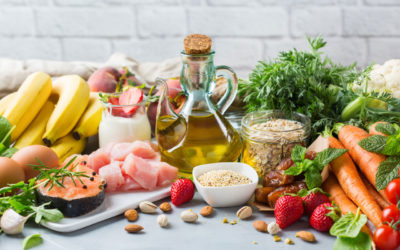
By Kirsten Serrano
I bet if I say stress eating, you think of a pint of ice cream or your favorite nachos. Stress can certainly drive you to make less than ideal food choices, but you can also eat to counteract its effects.
I love an underdog and when it comes to vegetables, my favorite is the beet. It is undervalued and all too absent from our plates. Beets have a lot of great health properties but let’s focus on beets and heart health. They truly help keep your heart “beeting.” Pun intended. Beets lower blood pressure, lower homocysteine levels (more on that below) and help regulate blood lipids (your cholesterol profile.)
Homocysteine is a byproduct protein that is released when the amino acid methionine is broken down in your body. If you are eating a nutrient-rich diet (and one notably high in B vitamins), your body can quickly break down the homocysteine into other substances the body needs. Your blood should have low levels of homocysteine. Unfortunately, higher than normal levels are a common occurrence. High levels are toxic and inflammatory. If present, that inflammation is damaging your blood vessels. Beets can come to the rescue. The high levels of betaine in beets are excellent at helping the body detox homocysteine. Consuming beets can reduce your homocysteine levels and cool inflammation.
There is more good news about beets and your cardiovascular system. Your body uses the plentiful nitrates in beets to make nitric oxide. The nitric oxide then works to relax blood vessels and improve blood flow. The results are so dramatic and important that athletes use beet juice to improve stamina and nitroglycerine is given during heart attacks. Better blood flow even improves brain performance and helps erectile dysfunction!
Finally, the high amounts of fiber in beets help regulate your cholesterol levels. They absorb dietary cholesterol in the digestive system and shuttle it out of the body.
So, is there a best way to eat beets? All ways! They are tasty steamed, pickled, roasted and raw. Here are a few considerations when consuming beets:
Do not boil them. You are boiling away nutrients and then dumping them down the drain.
Betalains are one of the phytonutrients that give beets their beautiful color and make them antioxidant, anti-inflammatory and detoxifying powerhouses. Betalains are richer in beets than other plant foods. Betalains are steadily degraded while being heated.
Steam beets for 15 minutes or less and keep roasting times to under one hour.
Eat them raw! Beets are high in carbohydrates and will spike blood sugar more than non-starchy vegetables. When you eat beets raw, they have less of an impact on blood sugar levels which may be important for you. While I do not recommend eating them like an apple (that would be a chore and you would be a mess,) they can be grated, cut into thin noodles or very thinly shaved for all kinds of uses.
Beets are popular for juicing, but the whole vegetable is a better option. When you juice them (or anything for that matter) you get the natural sugars and some of the nutrients, but you lose the fiber. You probably need more fiber in your life, so do not toss it away. Fiber helps to control blood sugar rise as well as being essential for digestive health. If you have a powerful blender you can add beets to smoothies and give them a beautiful hue.
Beets are in season year-round for most of us and they store well, so stock up. Beets greens are not trash! Use the greens in the same way you would use chard and kale. They are also nutrient-dense powerhouses.
If you think beets are not for you, I encourage you to keep trying them in new ways. They are worth it and your heart will thank you.
Kirsten Serrano is a nutrition consultant, chef, farmer, food literacy educator and the best-selling author of “Eat to Your Advantage.” You can find out more about her work at SmallWonderFood.com.









